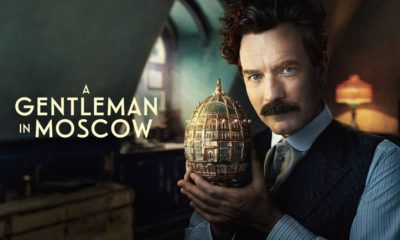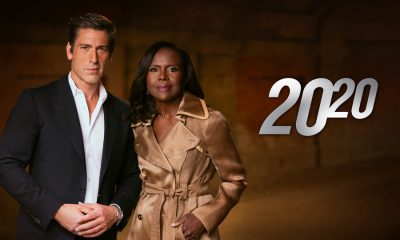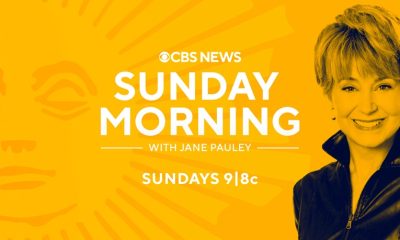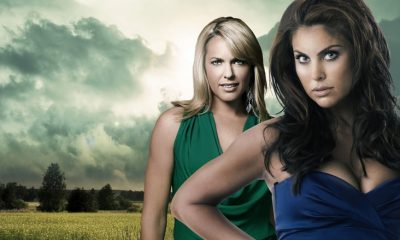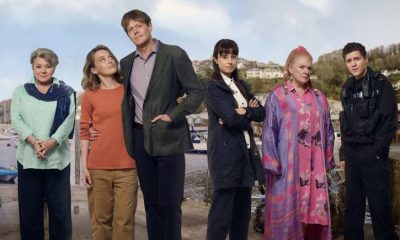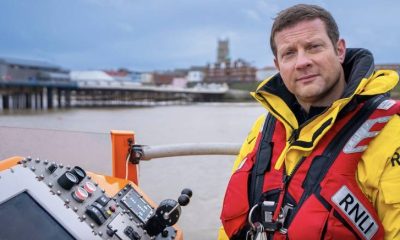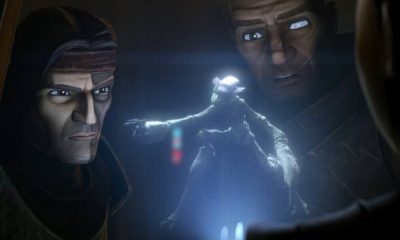TV
Twin Peaks (ABC, Showtime 1990-1991 and 2017, Kyle MacLachlan)
If you’re the kind of couch spud that likes literal storytelling, that feels at your TV-viewing best when you’ve got a firm grasp on what you’re watching and total comprehension, then this wasn’t the show for you. According to its cultishly prodigious lore, the idea for Twin Peaks came about when writer/producer Mark Frost and writer/director David Lynch were in a coffee shop musing about the image of a beautiful woman’s corpse washing up on a gravelly beach. It’s possible they had some cherry pie at that meeting, or some coffee as “black as midnight on a moonless night” (which is how their lead character Dale Cooper took his in the show). But then again, with these two minds at work, anything was possible. Maybe the diner didn’t exist at all. Maybe it was all in one of their dreams. Or maybe it did and their waitress was a midget or a giant, or maybe there was odd taxidermy all around them. Maybe.
By the time Twin Peaks debuted on April 8, 1990, the show had been aggressively hyped by both the network marketing whizzes and the critics who had seen its previews as something brand new to television—as television “art,” even. Frost had been a writer on Hill Street Blues, and Lynch, that most famous curator in the museum of weird, had made a name for himself with movies like Eraserhead, The Elephant Man and Blue Velvet. This creative teaming, plus all that preemptive hype, meant that viewers were talking long before there was anything to be viewed.
The show’s eerie opening sequence said it all: a trance-like synthesizer score from Angelo Badalamenti, little birds cocking their heads, smokestacks pumping away, a sawmill shooting sparks, and striking images from the forest surrounding the town—which in any other context would make for some nice postcard shots, but here, they filled a watcher’s gut with a bit of intrigue and dread. Choose your subtext (because in this show, you always could): nature’s invasion by man and his industry, but nature knowing something more than man, despite it all. There were a thousand and one themes to muse about in Twin Peaks, reams and reams of interpretative theories to be churned out, and it all started with those simple but forbidding opening credits.
The fictional Twin Peaks was a small logging town in the Pacific Northwest, just a few miles south of the Canadian border, and in many ways, time there had stopped. There were still acres and acres of Douglas firs that seemed untouched by man, the show’s notoriously sexy young leading ladies were known to slink around in saddle shoes and plaid skirts, and all the townspeople seemed to speak with words and phrases that didn’t quite register them as patrons of present time. A lot of the show just looked and felt slightly…well, off, and there was a constant feeling that things were afoot—which was exactly the point.
When erstwhile prom queen Laura Palmer’s plastic-wrapped and serenely beautiful dead body was found in a local lake, and then another young woman was found tortured but alive in the forest, FBI agent Dale Cooper (played by Blue Velvet’s Kyle McLachlan) arrived to investigate. The identification of Laura’s body—Twin Peaks was a small town and Laura was a well-known girl—would prove about the only thing that was cut and dried. As the episodes unfolded, Agent Cooper uncovered bizarre dimensions of intrigue that tied the townspeople together—there were love triangles and secrets and nefarious business scams galore. Cooper took most of it in stride, but as viewers, we were often left jaw-agape when the show broke for commercial. The curtain fell on the first season with a dramatic cliffhanger, and the Laura Palmer crime still unsolved.
But Agency Cooper kept at it…he befriended local Sheriff Harry Truman, recorded his observations in a dictaphone which he then sent to unseen secretary Diane, and when he needed to clear his head, he was known to throw rocks in the woods or indulge in the “damn fine coffee” and cherry pie at the local diner. He also paid close attention his dreams, which were populated by dancing dwarfs who spoke backwards, giants who spoke in epigrams, and dark mystical lodges where he confronted his enemies, the victims, and his own troubled soul. The catholic range of methodology worked, because he eventually solved the Laura Palmer murder—sort of (and read no further if you feel like renting a batch of old episodes and holing yourself up for a little weekend festival of the surreal). Laura’s dad, Leland Palmer, was technically the guilty party, though he was inhabited at the time by the soul of “Killer Bob,” a forest-dwelling supernatural bad guy who could enter the souls of Twin Peaks residents and wreak utter, and horrible, havoc.
The devoted kept on with their Twin Peaks viewing parties, and there was a healthy circulation of tapes, just in case anyone missed an episode…but the weird factor, by this point, was beginning to wear some viewers out. This wasn’t a show that you could take a break from and then come back to, after all—the plots were too layered and complex. And no one had a shot at complete show omniscience—the best way to stave off hopeless confusion was by watching, and hopefully discussing, each and every episode with fans just as intrigued and deliciously confused as you.
After the first season, Cooper’s nemesis became Windom Earle, his old partner who had gone nutty after his wife had been killed while in his and Cooper’s custody. Earle and Cooper played an elaborate chess game via the mail and newspaper columns—he was a master of disguises, he coerced many of Twin Peaks’ weirdest to do his bidding, and of course as aforementioned, he was downright insane. Television drama usually has one or two token “quirky” characters, but in Twin Peaks, those types were the rule, not the exception: The Log Lady, hard of hearing Bureau Chief Cole (played by Lynch himself), one-eyed Nadine…the list was long and macabre.
Since Twin Peaks didn’t exactly chronicle the American experience—at least one hopes it didn’t—and its progressive artiness always felt otherworldly to say the least, the show did very well internationally, especially in Japan. The two-hour premiere episode, with an eighteen-minute ending not shown in the States, was released theatrically in many countries. And in terms of tone, Twin Peaks inspired a slew of other 90’s shows to flirt with, or downright embrace, all that was odd in life—The X-Files and Northern Exposure, to name just a few.
For its second season, ABC moved Twin Peaks to Saturday nights and continued to juggle it around timeslots after that. And cultish following or not, the show’s ratings began a downward trend that never turned back around. In 1991, a two-hour finale aired. In 1992, however, largely to sate those cultish fans, Lynch directed the movie Twin Peaks: Fire Walk With Me, a prequel to events on the TV show, which chronicled Laura Palmer’s life in the days before her death.
Twin Peaks had kinky humor, crime intrigue, characters that redefined whimsy, plots that defied prediction, and a range of thematic undertones that acted like one big, weird playing field—in which fans could run around interpreting text and subtext as freely and wildly as they liked. For those who liked to scratch their heads and feel—at least for a little while—that the world is a loaded and utterly unpredictable place, the strange brew of this show actually proved a sort of elixir.
2017 saw a surprise revival of the series. Directed entirely by Lynch, the 18-part limited event series picks up 25 years after the events of the original series. Kyle McLachlan returned and the series also starred Amanda Seyfried, Ana de la Reguera, Ashley Judd, Bailey Chase, Balthazar Getty, Jennifer Jason Leigh
classic quote
“She’s dead. Wrapped in plastic.”
production details
USA / ABC – Showtime – Lynch – Frost – Spelling / 2x120m-e / 46x50m-e / 8 April 1990 – 18 April 1991 ABC and 21 May – 3 September 2017 Showtime
Creators/Executive Producers: David Lynch, Mark Frost
cast
Kyle MacLachlan as FBI Special Agent Dale Cooper
Michael Ontkean as Sheriff Harry S. Truman
Joan Chen as Jocelyn “Josie” Packard
Piper Laurie as Catherine Packard Martell/Mr. Tojamura
Mädchen Amick as Shelly Johnson
Dana Ashbrook as Bobby Briggs
Richard Beymer as Benjamin Horne
Lara Flynn Boyle as Donna Marie Hayward
Sherilyn Fenn as Audrey Horne
Warren Frost as Dr. William Hayward
Peggy Lipton as Norma Jennings
James Marshall as James Hurley
Everett McGill as “Big Ed” Hurley
Jack Nance as Pete Martell
Kimmy Robertson as Lucy Moran
Ray Wise as Leland Palmer
Eric DaRe as Leo Johnson
Harry Goaz as Deputy Andy Brennan
Mary Jo Deschanel as Eileen Hayward
Michael Horse as Deputy Tommy “Hawk” Hill
Sheryl Lee as Laura Palmer/Madeleine “Maddy” Ferguson
Russ Tamblyn as Dr. Lawrence Jacoby
Don S. Davis as Major Garland Briggs
Gary Hershberger as Mike Nelson
David Patrick Kelly as Jerry Horne
Wendy Robie as Nadine Butler Hurley
Kenneth Welsh as Windom Earle (1991)
Grace Zabriskie as Sarah Palmer
Chris Mulkey as Hank Jennings
Heather Graham as Annie Blackburn (1991)
Rick Giolito as Montana (1990)
Adele Gilbert as Midge Loomer (1990)
Don Amendolia as Emory Battis (1990)
Michael J. Anderson as The Man From Another Place
John Apicella as Jeffrey March (1991)
Phoebe Augustine as Ronette Pulaski
Robert Bauer as Johnny Horne
Frances Bay as Mrs. Tremond (1990)
John Boylan as Mayor Dwyane Milford
Ian Buchanan as Richard Tremayne
Victoria Catlin as Black Rose “Blackie” O’Reilly (1990)
Catherine E. Coulson as Margaret Lanterman, The Log Lady
David Duchovny as DEA Agent Dennis/Denise Bryson (1991)
Julee Cruise as Julee, the Roadhouse singer
Jan D’Arcy as Sylvia Horne
Miguel Ferrer as FBI Forensic Specialist Albert Rosenfield
Jane Greer as Vivian Smythe (1991)
Joshua Harris as Nicolas ‘Little Nicky’ Needleman
Robyn Lively as Lana Budding Milford
Nicholas Love as Malcolm Sloan (1991)
David Lynch as FBI Regional Bureau Chief Gordon Cole
Carol Lynley as Diane, Cooper’s secretary
Brenda E. Mathers as Caroline Powell Earle (1991)
Carel Struycken as The Giant
Michael Parks as Jean Renault
Mak Takano as Jonathan Lee/Jonathan Kumagai (1990)
Jill Rogosheske as Trudy
-

 News2 days ago
News2 days agoClaim Your Cash? Britain’s Hidden Fortune – Tonight, 18 April 2024, ITV1
-

 News3 days ago
News3 days agoInterrogation Raw, April 18, 2024, A&E, “Massacre in Maine”
-
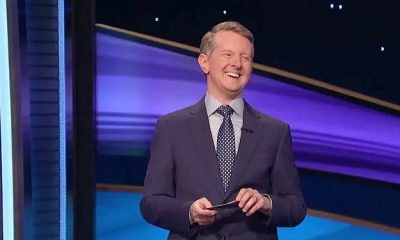
 News2 days ago
News2 days agoJeopardy! Recap, Winner and Today’s Final Answer Wednesday, April 17, 2024
-

 News2 days ago
News2 days agoThe Hotel Inspector: Chiltern’s View Lodges, 18 April, 2024, Channel 5




